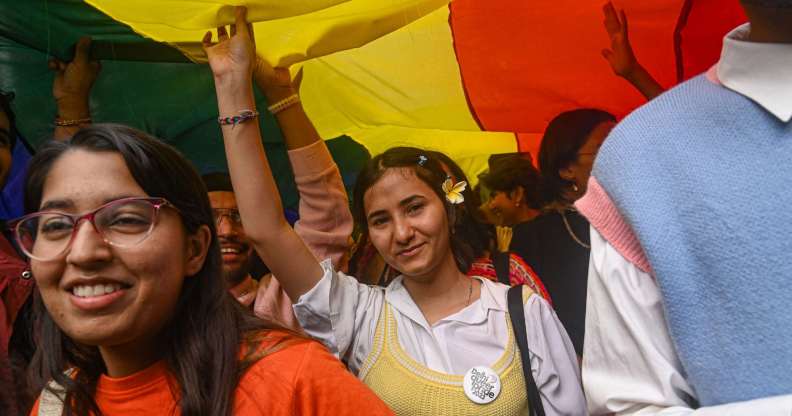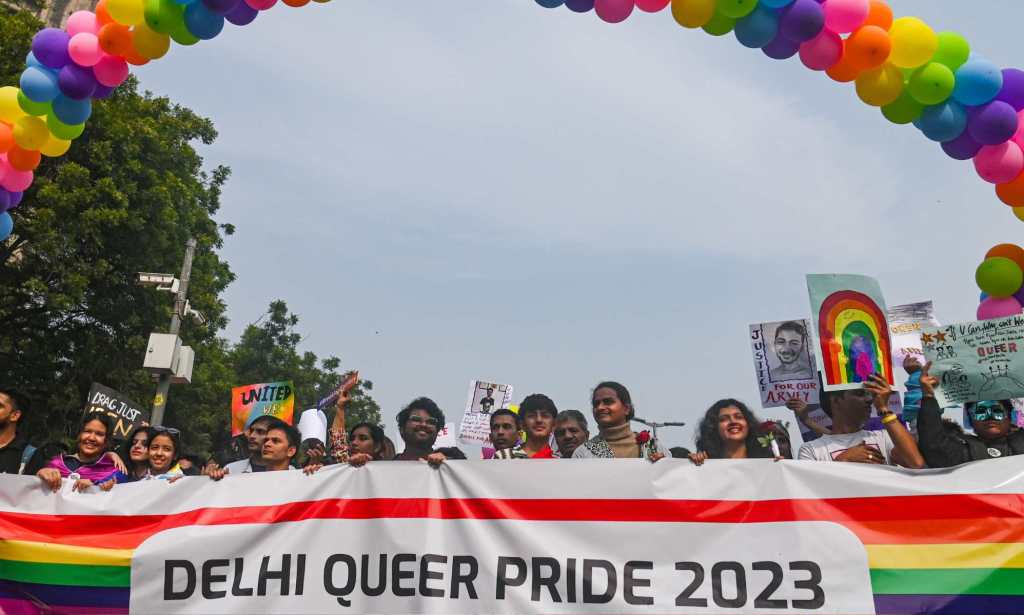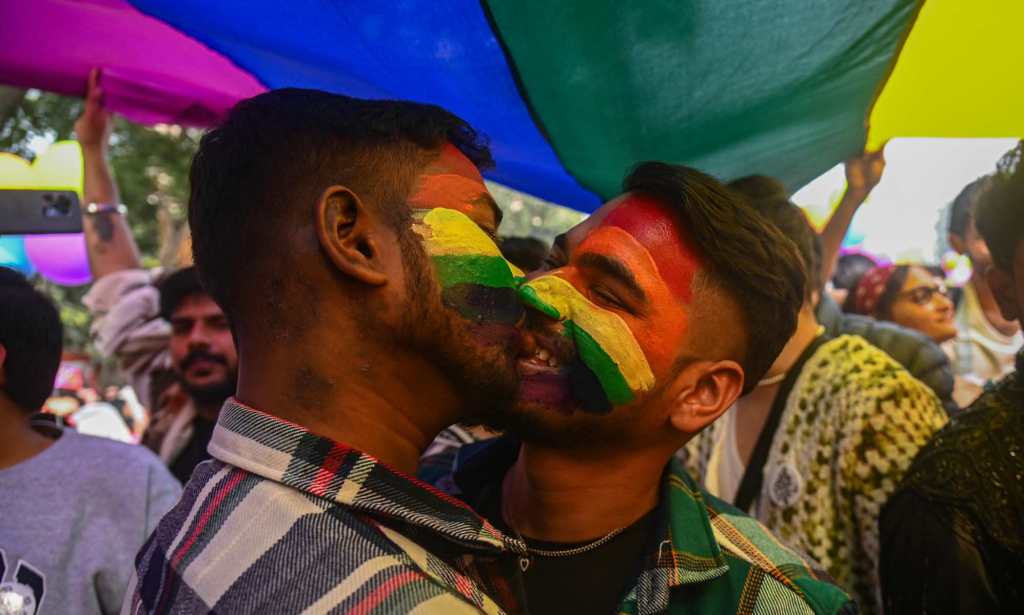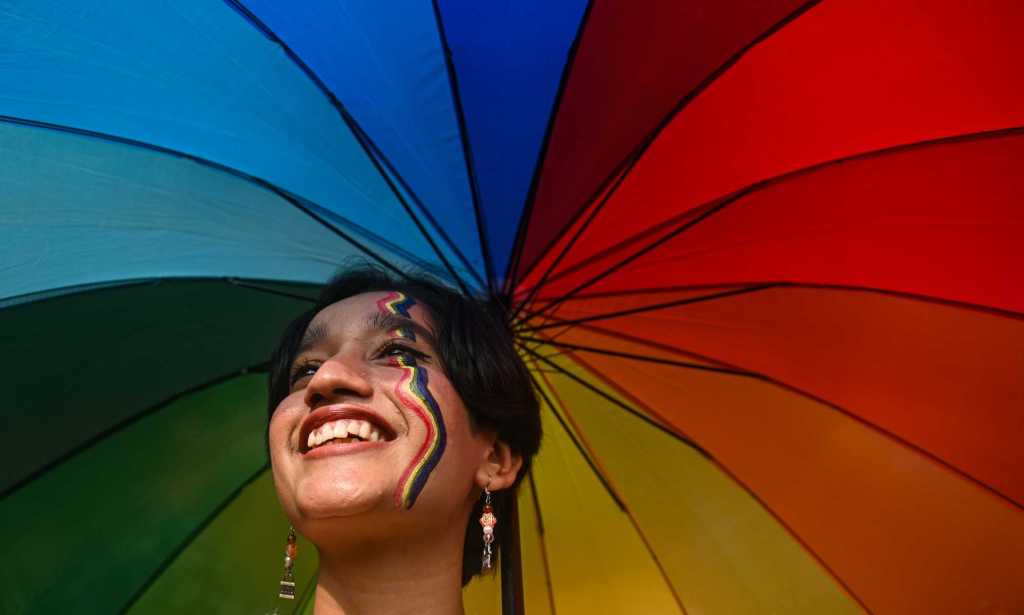Indian LGBTQ+ community march at New Delhi Pride after bid for marriage equality rejected

India’s LGBTQ+ community are fiercer than ever in their calls for marriage equality. (Getty Images)
Over 2,000 LGBTQ+ people and allies marched in New Delhi, India over the weekend for a Pride event, just weeks after a bid to introduce marriage equality was rejected.
Dressed in bright colours, waving rainbow flags, and blaring upbeat music, people marched for over two hours until they reached the Jantar Mantar area, where India’s Parliament is situated.
Participants held signs calling for queer acceptance and, more specifically, marriage equality, after being let down by the Supreme Court, which failed to legalise same-sex unions.

Last month, on 17 October, India’s LGBTQ+ community was let down when the country’s top judges ruled in a 2-3 decision not to recognise same-sex marriage.
The devastating result came five years after the Supreme Court successfully decriminalised homosexuality in India – an enormous breakthrough for the country that inspired the queer community to campaign for marriage equality.
Supreme Court justices did call for better awareness and support for LGBTQ+ people. They also called on the government to ease same-sex couples’ access to opening a joint bank account and adoption, to prevent discrimination.
Still, the court’s failure to legalise same-sex marriage was a brutal blow to hopeful LGBTQ+ couples who had been waiting outside the courthouse in hope.

Now, the only group that can introduce marriage equality are government legislators, who have made it clear that they’re not interested – despite the majority of the country’s estimated 1.43 billion population supporting change.
This June, a Pew survey found that 53 per cent of Indian adults believed that same-sex marriage should be legalised.
Although the Indian government claimed in 2012 that the country has an LGBTQ+ population of about 2.5 million, local activists have calculated, based on global estimates, that LGBTQ+ people actually account for at least 10 per cent of India’s population, which would bring that number up to about 135 million.
Speaking to the Associated Press at the New Delhi Pride march over the weekend, one organiser, Noor Enayat said: “It’s not about marriage. It’s about equality. Everybody should have the same right because that’s what our constitution says.”

At present, just two Asian countries recognise same-sex marriage, those being Taiwan (2019) and Nepal (2023).
Meanwhile, Thailand’s parliament is set to debate its own marriage equality bill next month, after it was approved by the country’s cabinet.
If passed, the amendment will make Thailand the third Asian country and first Southeast Asian country to legalise same-sex marriage.
How did this story make you feel?

